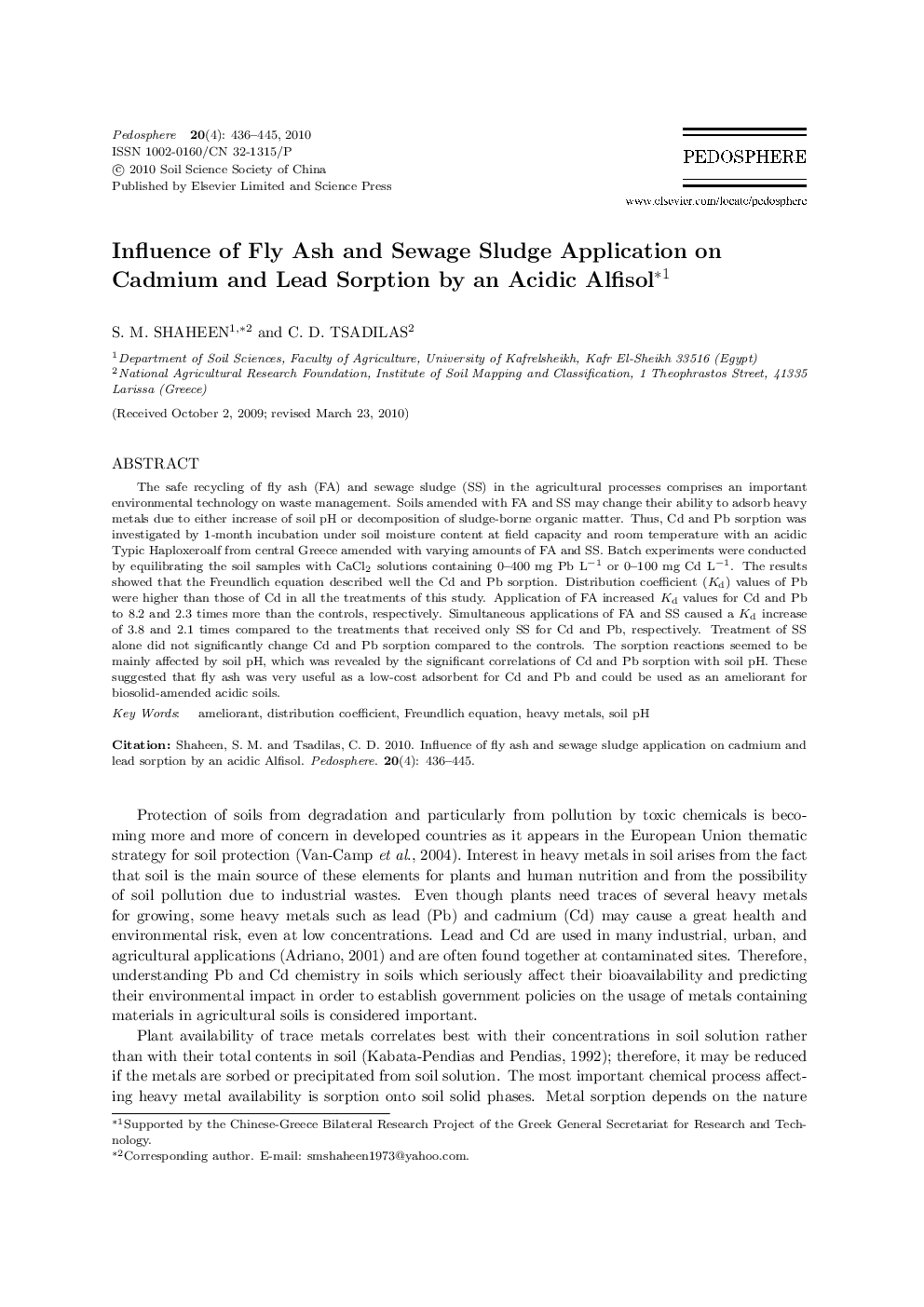| Article ID | Journal | Published Year | Pages | File Type |
|---|---|---|---|---|
| 4581691 | Pedosphere | 2010 | 10 Pages |
The safe recycling of fly ash (FA) and sewage sludge (SS) in the agricultural processes comprises an important environmental technology on waste management. Soils amended with FA and SS may change their ability to adsorb heavy metals due to either increase of soil pH or decomposition of sludge-borne organic matter. Thus, Cd and Pb sorption was investigated by 1-month incubation under soil moisture content at field capacity and room temperature with an acidic Typic Haploxeroalf from central Greece amended with varying amounts of FA and SS. Batch experiments were conducted by equilibrating the soil samples with CaCl2 solutions containing 0–400 mg Pb L−1 or 0–100 mg Cd L−1. The results showed that the Freundlich equation described well the Cd and Pb sorption. Distribution coefficient (Kd) values of Pb were higher than those of Cd in all the treatments of this study. Application of FA increased Kd values for Cd and Pb to 8.2 and 2.3 times more than the controls, respectively. Simultaneous applications of FA and SS caused a Kd increase of 3.8 and 2.1 times compared to the treatments that received only SS for Cd and Pb, respectively. Treatment of SS alone did not significantly change Cd and Pb sorption compared to the controls. The sorption reactions seemed to be mainly affected by soil pH, which was revealed by the significant correlations of Cd and Pb sorption with soil pH. These suggested that fly ash was very useful as a low-cost adsorbent for Cd and Pb and could be used as an ameliorant for biosolid-amended acidic soils.
